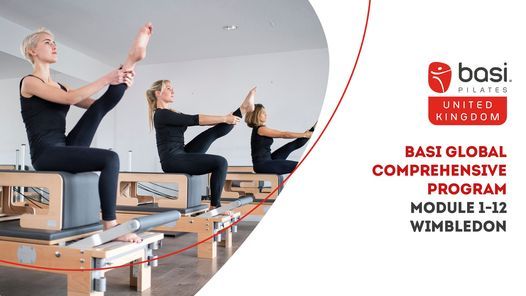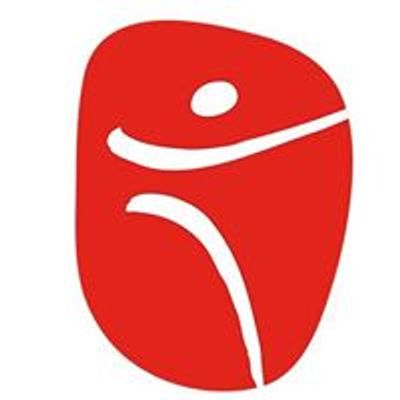
Advertisement
More than simply a program of study, the BASI CTTC is an enduring foundation for a career in Pilates, with graduates qualified to teach all levels of student on the full complement of equipment including Mat work.“Great to see how Pilates and physio are so interlinked! Very interesting, interactive and extremely exciting, although, of course, also challenging at times! I had a great workout” – University Physio student
“It is challenging but I am determined to practice till I have mastered it!”
Upon completion of the course, you will be qualified to:
Work according to the principles of Pilates and introduce them to clients and students
Assess posture and posture types, as well as detect postural deviations
Solve problems and provide effective exercise solutions for many physical conditions
Compile comprehensive and safe Pilates programs, tailored to individual needs
Direct a studio according to the highest professional standards
Use the BASI® Block System to successfully administer individual and group sessions
Analyze and understand the Pilates exercises, based on anatomical and biomechanical principles
Demonstrate at a high level the vast repertoire of classic Pilates exercises, as well as a wide range of original BASI exercises
Use the full line of Pilates apparatus (Reformer, Cadillac, Wunda Chair, Barrels & Auxiliary Equipment) including the Mat Work
Modify exercises according to the needs and goals of the individual
The course structure is modular. A student can make up or repeat any of the 12 modules (6-7 hours each) at any BASI Pilates host location around the world. Each module consist of practical and theoretical components.
Module 1, The Fundamentals
The principles, the pelvis, breathing, exercise description, historical overview, safety. Mat and Apparatus repertoire covered.
Module 2, Anatomy Part 1
Anatomy overview & terminology, joints, centre of gravity, cueing & imagery. Mat and Apparatus repertoire covered.
Module 3, Anatomy Part 2
Anatomical movement analysis, muscles, aerobic & anaerobic exercise; the BASI Block system. Mat and Apparatus repertoire covered.
Module 4, Posture Assessment
Principles of alignment, posture and posture assessment; types of faulty postures. Mat and Apparatus repertoire covered.
Module 5, Core Strength – Back & Abdominals
Effective exercise, contraindications for the spine, guidelines for successful teaching, being a teacher. Mat and Apparatus repertoire covered.
Module 6, Exercise Adaptation
Exercise adaptation, exercise progression, modifications to exercise, using small equipment, constructing a complete and comprehensive program. Mat and Apparatus repertoire covered.
Module 7, Muscle Balance and Imbalance
The meaning of balance, imbalances in strength and flexibility as a cause of injury, functional versus isolation exercises, muscle testing and function. Apparatus repertoire covered.
Module 8, The Lower Limbs
The hip joint and the knee joint and the ankle-foot complex are the significant concepts covered. The gait cycle is discussed and analyzed. Repertoire taught is intermediate Reformer, Wunda Chair, and Cadillac. A one-hour mat class is given. 6 hours long.
Module 9,The Shoulder
Significant concepts covered are the structure and function of the shoulder region. The shoulder joint, muscles of the shoulder, and the importance of correct mechanics are presented. Discussion includes how to work with clients with shoulder problems and recognizing their boundaries and limitations. Repertoire taught is intermediate Reformer, Cadillac, Wunda Chair, and introductions of the Ladder and Step Barrels. A one-hour mat class is given. 6 hours long.
Module 10, Program design principles
Significant concepts covered are the principles of training such as overload, specificity, and reversibility. Components of physical fitness are addressed and analyzed. Discussion includes repertoire levels and how they relate to working with a broad range of clientele. Repertoire taught is advanced Reformer, Wunda Chair, and Cadillac. A one-hour mat class is given. 6 hours long.
Module 11, Specific population Part 1
Significant concepts covered are habitual movement patterns, cross training, imbalances and setting goals. The athletic population is looked at more closely. Discussion includes teaching methodologies. Repertoire taught includes intermediate and advanced level work on both Ladder and Step Barrels. A one-hour mat class is given. 6 hours long.
Module 12, Specific populations Part 2
Final Examinations. Significant concepts covered are populations with restrictions with an in-depth look at pregnancy. Topics discussed include teaching men and women, different body types, and different objectives and approaches. There is a general overview of repertoire.
In addition to the academic study, students must complete the following hours of study: observation (100 hours, of which 50% can be done using BASI Interactive ), self-practice (200 hours, of which 50% can be done using BASI Interactive ) and student teaching (200 hours).
Your observation and personal practice are best done in a BASI environment, for your learning sake, and your UK/Ireland host will allow you time for observation in their studio or to practice quietly on the apparatus. You can also book in with them for paid sessions, which is highly recommended and a very important part of your learning.
If you have no access to a BASI studio and don’t live near your host studio, then you can log hours in a non-BASI environment and then refer to BASI Interactive to check on what might be different and why. Your teaching can be done at home or anywhere you can find friends or family willing to have you teach them. To teach using the apparatus, you can generally book in time at your host studio to teach fellow students to gain hours of practice. Please treat your host studio and their apparatus with the utmost respect.
There are exams during and at the end of the course, both practical and written. There is a research paper to complete as well as a teaching evaluation and practical demonstration to do in order to complete the final stages of the course. Exam dates are published on this website under the tab ‘Dates’.
Advertisement
Event Venue & Nearby Stays
The Pilates Clinic, 2nd floor, 7, Elm Grove, SW19 4HE London, UK, Sutton, United Kingdom
Tickets
